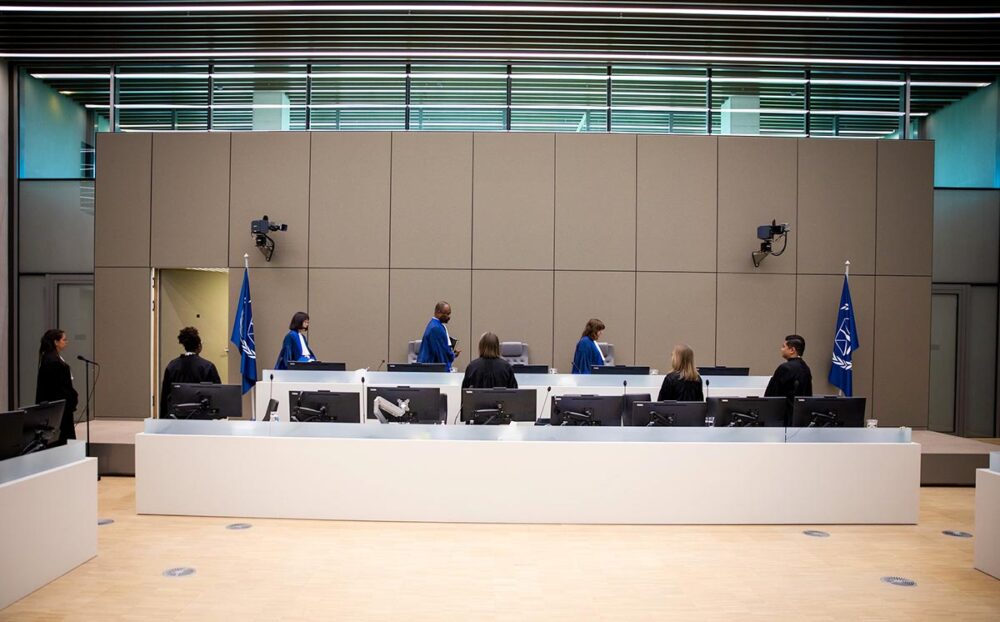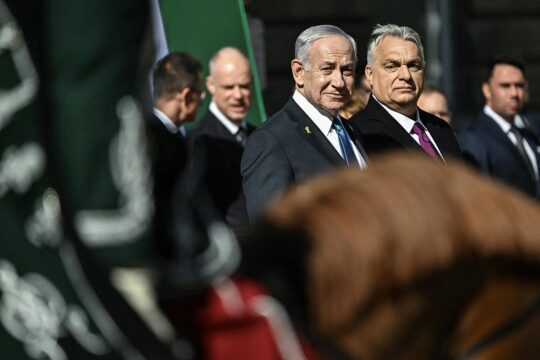At the September 4 hearing on the sentencing of Al Hassan Ag Abdoul Aziz Ag Mohamed Ag Mahmoud, the prosecution called for at least 22 years in prison. Al Hassan was found guilty at the International Criminal Court (ICC) in June this year of 8 counts of war crimes and crimes against humanity and acquitted of six counts, for his role as head of the Islamic police in the occupation of the northern Malian city of Timbuktu in 2012-2013 by Ansar Dine, a local franchise of Al-Qaida in the Islamic Maghreb (AQIM).
The victims’ representatives stressed how shocked and disappointed their clients were by the acquittal of Al Hassan on several charges. The defence spent time showing the ambiguities in a trial judgement that included multiple dissenting and overlapping opinions as part of a much-delayed judgment from a panel of three judges which has since been re-constituted to replace the presiding judge.
The case concerns new issues for the ICC that have never previously been dealt with in an international court. Already, it is clear that the Appeals Chamber will have a very tangled ball to unknot when facing the multiple appeals planned from all parties.
Timbuktu had been taken over by Islamic extremists in a short-lived mini-caliphate. A strict form of Sharia law was imposed, with harsh punishment for drinking, for women wearing the wrong clothes, men for rape. The enforcers were the morality brigade (the Hisbah) and the Islamic Police. The deputy prosecutor Mame Mandiaye Niang was eager to tell the court though that “this is not a trial against Islam”, instead it was the population of Timbuktu who were mainly Muslims who were the victims in this case.
Does International humanitarian law apply?
Al Hassan was in court, behind his defence team, in a traditional snowy white flowing robe wrapped around his face, and with a gold-coloured watch. The pictures painted by the prosecution and defence of Al Hassan the man, his actions and his motivations were completely at odds. Al Hassan played a “pivotal” role, said prosecutor Gilles Dutertre. “He was full of personal ambition.” He was not a soldier nor a politician, Al Hassan’s defence counsel Melinda Taylor told the court. His behaviour was shaped and constrained by the context: he stayed under Islamic occupation in Timbuktu. He made efforts to do good. “He used his position to help the local population.”
This is “really the first time,” says Katerine Fortin, an international humanitarian law specialist at Utrecht University, The Netherlands, that any international criminal tribunal has been asked to study “in such a magnitude of charges, the phenomenon of rebel governance,” which is a growing international issue. Last year the International Committee of the Red Cross found that “195 million civilians are currently living under the control of armed groups.” How far does international humanitarian law apply in these contexts? Fortin notes that “it's sometimes been said that the best defence against an allegation of a violation of international humanitarian law is to argue that it doesn't apply.”
ICC judges don’t help
“What's controversial here,” she continues, “is that the whole chamber has taken a very broad-brush approach” to assessing how intense the conflicts were - and therefore whether international law applies, “without really explaining the legal basis on which it's doing it.”
“Many modern conflicts are very fragmented with multiple fighting parties. Most people are saying the law should change,” acknowledges Fortin. But this trial chamber doesn't show how it has come to its conclusions, she says, despite almost 1000 pages of judgement and attached opinions. “It hasn’t done it in a particularly careful way.”
Academics will be pouring over that judgment for many years to come because it deals with so many big issues that the ICC has not dealt with before. Under the occupation how did the Islamic police and the Islamic tribunal operate? Did they pass sentences like a regularly constituted court? Or did they unlawfully detain people, and is that a crime in a non-international armed conflict? “This case is particularly fascinating. Because the court has had to answer all of these questions, that are very difficult,” says Fortin.
The controversial statement by Al Hassan in prison
Some of the key areas on which the prosecution and the defence were completely divided were not actually part of the allegations against Al Hassan, because they stemmed from the time he spent in the custody of the Malian security services before an arrest warrant was issued against him by The Hague. He is a “torture survivor,” said his lawyer Taylor. While prosecutor Dutertre said the judges should leave his alleged PTSD aside, because there is no connection to his ICC case.
Al Hassan’s statement to the ICC while in prison is “heavily relied upon in the judgement,” points out Fortin. But “the allegation that Al Hassan was tortured while in the Malian custody and that during this time the ICC prosecution was visiting him in prison are given very short shrift,” she notes.
Only one clarifying question came from the bench. Presiding judge Kimberly Prost asked about Dutertre’s line that ”we see no trace of cooperation” by the accused and that Al Hassan “systematically stood against the proceedings.” Didn’t he give a lengthy statement to the ICC while in the Malian prison? asked Prost. You should give that interview “little weight,” responded Dutertre because there was no further cooperation. Taylor, however, highlighted that at that point Al Hassan had no arrest warrant against him. So it was an example of pure cooperation because “there was no quid pro quo” for speaking to the ICC. Her client “cannot be penalised for using statutory rights” later by clamming up once there was an arrest warrant.
Both parties returned to the question of how important a role Al Hassan played. The prosecutor again pointed to the video evidence of the man with the whip, administering more than 60 lashes in public (there is some dispute between prosecution and defence here but it is in the judgment): “He is not simply following orders. He is in a leading role.” Or was he as the defence had portrayed him? “Une petite sardine” – or ‘small fish’ – who as “a translator was helping translate things because he was actually a local from the town. He wasn't part of this. He wasn't originally part of these armed groups who were not local from the town,” Fortin explains. “The defence has always argued that his connection to these crimes was quite tangential.”
The controversial judgement on gender persecution
Of huge concern according to the legal representatives of the victims was the way that gender persecution had fallen out of the proven charges. There was “amazement” at the judgement, said Fidel Nsita Luvengika, one of the victims’ common legal representatives. Having put their trust in the court and in the process the victims saw in the judges’ decision an acquittal on some of the most traumatic crimes on which people had testified.
Gender persecution is very likely to be a subject of appeal, says Fortin. “These [armed] groups were establishing rules that had a very far-reaching effect on daily life in Timbuktu,” she notes. “It's an uncontested, extremely serious impact on women, both in terms of what women could wear, their sexual relations, their marriage and their participation in public life.” And “you end up with this strange situation,” she notes, where persecution, as a crime on religious grounds, is agreed to by all judges, but gender persecution doesn't have the majority, for different reasons.
“There will almost certainly be an appeal,” agrees Kyra Wygard of the Leuven Centre for Public Law, who focuses on judges and their practise at international criminal tribunals. “While it is not uncommon for judges to issue separate or dissenting opinions — both at the ICC and other international courts like the International Court of Justice — the opinions in the Al Hassan judgment appear to highlight significant challenges within the bench. Notably, all three judges issued ‘partially concurring, partially dissenting’ opinions, revealing disagreements on most counts.” Also, Wygard says, this judgment is “unprecedented” in that it specifies which judges voted in favour or dissented on specific counts. “I think a first in ICC history.”
Additionally, she says, “the fact that all three opinions are labelled 'partially concurring, partially dissenting' is itself noteworthy. Typically, in a Trial Chamber judgment, one would expect either a separate/concurring or a dissenting opinion, not a hybrid of both. While this is procedurally not unallowed, these factors — coupled with a delay of nearly six months and multiple changes in the bench's composition since June — indicate significant difficulties within this bench, also on a procedural level which will likely result in an appeal.”
Overshooting the mark on sentencing
The prosecution picked out each of the counts of the judgement, arguing for 20 years for persecution, 20 years for torture and overall, a minimum of 22 years. The defence argued for “a reduced sentence, proportionate to his circumstances”. Taylor ran through all the ICC prosecution sentence requests over the years, showing that “they have a history of considerable overshooting the mark” in asking for many more years that judges feel appropriate.
The victims' representatives did not relay specific requests for a number of years in prison, except for one comment from a victim that “he deserved life in prison”. They were reflecting instead the “astonishment” and “anger” and “incredulous feeling of incomprehension,” especially from women, that the charges connected to gender had not been proven. The victims pointed out that “the consequences have not stopped with the generation who lived through these events.”







